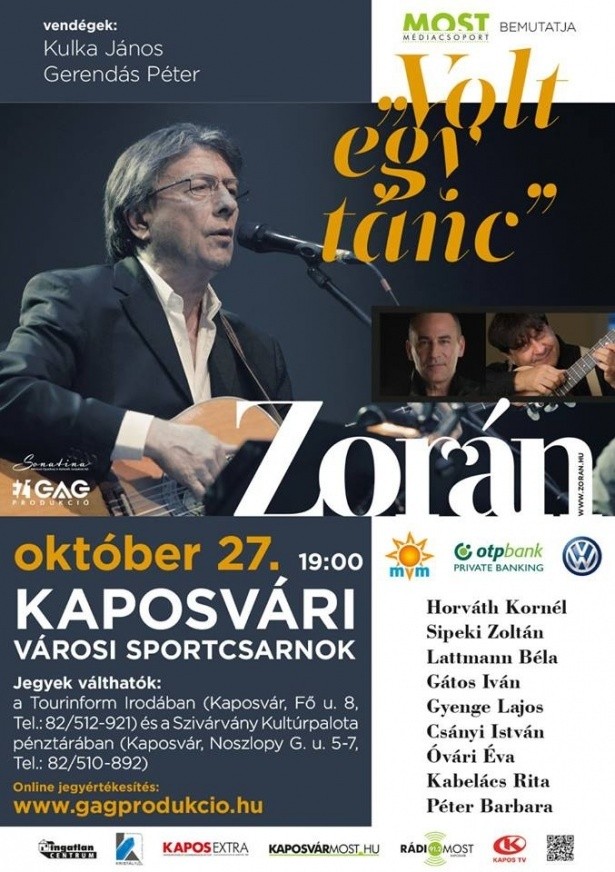
Tuned to harmony
– Zorán’s concert and afterthoughts –
In my late teens, my secondary school form teacher would often ‘encourage’ me to listen to some songs from Zorán.
And this constant ‘encouragement’ led me to do just that. I immediately understood the real message of them. Many years have passed since then, but I still like listening to his albums. They help me laugh or cry, and also help me to understand everything around me. Maybe the best is when my thoughts, provoked by the songs’ music and lyrics, are just as unruly as were my teenage years.
So it was a great pleasure to have attended last night’s concert in Kaposvár (27th October). I went there with boys from my group who hold Zorán in great esteem. There were some mothers as well; including one who always gives a helping hand in our activities, and one who had her dream come true last night, after having worked overtime and having gone out in such a bad weather, with chilling cold and fog all over the sky.
The City Sports Hall (which is not as small as some would think) had been sold out. There were lots of familiar faces in the audience, ranging from toddlers to granddads. Three years ago, the last time he was in town, the Szivárvány Palace of Culture was also crowded with music-loving people. There, our students who are actively involved with music found excellent not only the songs, but also the musicians and singers who accompanied Zorán on stage. The case was no different last night. They played lots of different songs: both old and new, slow and fast, happy and sad. Zorán also sang some duets with guests: one of them was János Kulka, who, although is better known for his acting qualities, is also great when it comes to singing; the other was Péter Gerendás, Zorán’s longtime tour mate. These acts were so successful that the audience prompted the musicians to return and perform one more song. Zorán’s greatest songs, such as ‘Volt egy tánc’ or ‘Apám hitte’, really made us appreciate this kind of music, which the artist labelled ‘text-centric music’, over nowadays’ mainstream music genres.
V. Sárközi Angéla


